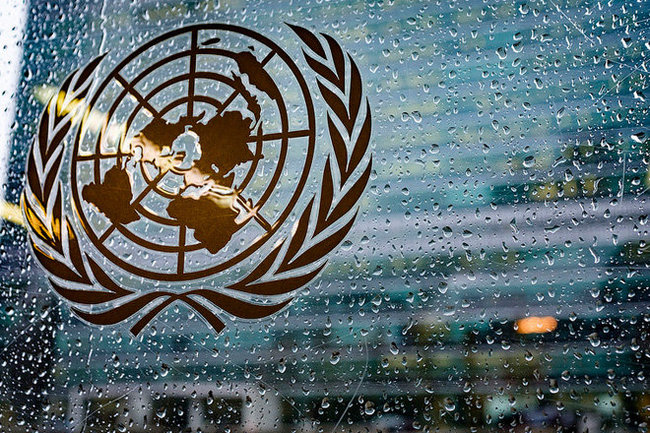Statement by Chargé d'Affaires of the Russian Federation Dmitry Polyanskiy at the third substantive session of the Open-Ended Working Group on security of and in the use of ICTs 2021-2025
Mr.President,
I would like to speak on a number of substantive issues, in particular on the Russian initiative on establishing a Directory of Points of Contact (PoCs).
We believe that facilitating direct communication between competent authorities of States is a strategic and urgent issue – without reaching this goal it is impossible to even discuss possible ways of ensuring international information security. Russia suggests establishing a directory of Points of Contact (PoCs). This initiative will contribute to enhancing a pragmatic interaction between major national structures for responding to computer incidents as well as decreasing tension and threats stemming from false understanding and perception of incidents in the use of ICTs. Our initiative builds on the recommendations of the final reports of the first OEWG of 2021 (para 51) and Group of Governmental Experts of 2021 (para 78). We submit a concept paper on the directory of PoCs with the Secretariat of the OEWG and request its staff to circulate the document among the delegations.
A direct interaction of States is crucial. It will make possible tо enhance mutual trust, cope with the current situation in international information space. Today the use of ICTs is comparable to brooding jungles where the strongest stays alive and imposes his own law. In fact, this is about developed states. Their companies – producers and right owners – in the pursuit of profit impose their rules and standards on other States, their citizens and economic operators, which are often contrary to the national legislation, local traditions. They intend to introduce norms and practices of the West as a basis for international law in information security which will fit the exploitation of information resources of the users of ICTs. Such ambitions of the capital owners are partly understandable. At the same time, it is clear that only States can be responsible for international peace and security. They are the ones who influence stability in information space. The destiny of the OEWG – being the only universal and truly democratic mechanism – is to promote establishing a system of ensuring international information security with due regard to interests of all States with no exception. This strategic idea forms the basis of the position of the Russian Federation.
It is necessary to take practical steps to close a gap among States’ approaches and negotiate elements of a future international legal regime of regulation of information space. We believe that in the absence of legally binding agreements it is premature to focus on control over the implementation of the existing set of voluntary rules of responsible behaviour by States. Such forms of accountability, not agreed within the UN, are unacceptable for Russia. It would be reasonable to come back to a thorough consideration of proposals of States, first of all, on the development of new norms, contained in the Chair’s summary of the first OEWG.
Mr.President,
In our view, one more priority of the OEWG is elaborating further measures of capacity building, negotiating relevant programs. It is vital to ensure fair and depoliticized capacity building with strict attention to the needs and national security interests of sovereign developing countries. We believe that the capabilities of non-governmental actors should be addressed to ensure economic and social development – primarily giant companies which make hundreds of billion dollars from information and personal data of citizens of developing countries.
We are grateful for the efforts of the Chair on designing the draft progress report of the Group. Just as a recommendation, we would like to request for circulating zero and first drafts of the report beforehand – at least, two months before the session. States and their competent authorities should not negotiate the position on the most difficult and sometimes controversial issues of information security under time pressure.
We consider the draft report as a basis for agreeing on practical steps and plans for future work. In this context the adoption of the document at this session is crucially important. However, the report should reflect the interests of all participants to the process in a balanced manner. We are going to have a serious, thorough and, frankly speaking, sleepless work on the text. Russia is ready for that.
Mr.President,
The experts of our delegation will further request for the floor on a number of aspects related to this agenda item.
Thank you.
